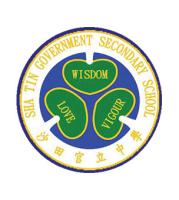| Language Policy |
English is used as the main medium of instruction in all subjects except Chinese Language, Chinese History, Putonghua, Chinese Literature and Citizenship & Social Development. Our school aims to train our students to become biliterate in English and Chinese, and trilingual in English, Putonghua and Cantonese. |
| Learning and Teaching Strategies |
With sophisticated computer network and facilities, our school actively promotes information technology in education. We also emphasize the training of students' self-learning skills, nurturing good virtues and manners, whole-person development and effective teaching and learning. The curricula and teaching syllabuses of various subjects in our school gear closely to the curriculum framework and key learning areas devised by EDB. School-based curriculum is implemented in our school and the training of students' generic skills is also incorporated in everyday lessons. |
| School-based curriculum |
1. Electives: 3X. A multitude of subject combinations are devised from different key learning areas postulated by Education Bureau.<br> 2. Curriculum highlights: <br>Cross-curricula Collaboration. <br><br>Subject Choice of Senior Levels e.g. Students can choose electives from a combination of Science and Humanities Subjects.<br><br>There are S4 and S5 Reading Across Curriculum and Other Learning Experiences lessons.<br><br>Junior Levels:<br>S.1: Aquaponics (collaboration between Science and English)<br>S.2: Personal, Social & Humanities Education Project (collaboration between Geography, Life and Society, Chinese History and History)<br>S.3: Project-based Learning: towards integrating and applying knowledge and skills across disciplines |
| Approach to Catering for Learner Diversity |
To cater for learner diversity, our school organizes after-school learning programs, assigns graded exercises to students of different abilities and employs different teaching strategies to match students' learning styles. Our school makes use of information technology to support students of diverse abilities to learn at their own pace after school. Group learning activities and discussions are held to enhance the effectiveness of teaching and learning. For S.1 Chinese and English lessons, the school has split classes to enhance learning effectiveness. Teachers give timely feedback to students regarding their learning tasks to consolidate their knowledge. Students also have to do self-evaluation on their studies. |
| Approach to Integrated Education |
We endeavour to foster integration and build a caring school community, offering students with special needs school-based support through home-school cooperation and resource allocation. Catering for the needs of individual student, our targeted and diversified support services will improve students’ learning effectiveness and communication skills, hence to ensure a more enjoyable integrated school life and healthier personal growth. We have set up a support group for students, members including our assistant principal, the SEN coordinator, teachers equipped with SEN training, our school social workers, teaching assistants, the speech therapist and the educational psychologist from EDB. We and our subsidiary units keep close contact with the inspectors from Special Education Support Section, EDB as well as parents. We carefully assign a range of resources for SEN assistance, providing professional care services such as social skill training workshop and other skills’ training workshops. Our valued home-school cooperation and regular communication between parents and our group members or teachers bring forward our joint-effort in student support. |
| Education Support for Non-Chinese Speaking (NCS) Students |
|
| Home-School Co-operation |
The Parents-Teachers Association is set up with the aim to establish a close bond among parents, to facilitate communication and strengthen the tie between the school and the students' families. The Association also works closely with and fully supports the school for the betterment of students. Besides, two parent representatives are elected as members of the School Management Committee to help devise the school major policies and endorse the school budget. |
| School Ethos |
Our school has established a good reputation and we provide a harmonious environment for students to learn. Students have a strong sense of belonging to the school and there are committees providing various kinds of support to our students, including discipline, guidance, moral and civic education, health, sex and life education, environmental education, careers and extra-curricular activities committees. |
| School Development Plan |
We strive for excellence in learning and teaching through measures such as enhancing students' effective learning strategies, catering for learning diversity and implementation of senior secondary education. On top of these, the school also puts great emphasis on the Student Portfolio Scheme, Student Learning Profile, Project-based learning and Reading to Learn. |
| Teacher Professional Training and Development |
Teachers are encouraged to attend courses and seminars to broaden their professional knowledge. Our school organizes three Professional Development Days throughout the year and a mentor is assigned for every new teacher. The school arranges Collaborative Lesson Planning Sessions for professional development. Peer lesson observation and collaborative lesson preparation are frequently conducted among teachers to enhance the effectiveness of teaching and learning. |
| Life-wide Learning |
There are four houses and twenty-one interest clubs in our school. School clubs are divided into five types, including academic, arts, sports, interest and service groups. For all S.1 students, we provide 'An Art/Sport for Life' Scheme. |
